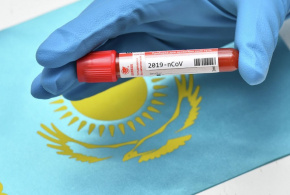
The Minister of Finance Alikhan Smailov spoke about the progress of the tax amnesty for small and medium-sized businesses.
As part of the tax amnesty for SMEs, penalties and fines subject to payment of arrears recorded in personal accounts as of Oct. 1, 2018, will be written off. In general, the tax amnesty covers about 90 thousand SMEs, who have the main tax debt of 210 billion tenge. If you pay these debts, the Ministry of Finance will write off 130 billion tenge of fines and penalties.
As of today, about 28 thousand taxpayers have already repaid the arrears in excess of 5.9 billion tenge. Accordingly, 1.1 billion tenge of penalties and 0.1 billion tenge of fines are due.
“We give businesses the opportunity to pay the principal debt, while not paying penalties and fines. For citizens who pay off the main body of the debt, which is available as of Jan. 1, 2019, all accrued interest will be written off. The state receives tax revenues. For example, according to the amnesty for small and medium-sized businesses that have debts Oct. 1, it is about 90 thousand, the state should receive more than 200 billion tenge of additional tax revenues in case all taxpayers pay the main body of debt,” Smailov said.
In addition, according to the minister, this measure makes the economy healthier in general. That is, if there are no overdue debts, then the company can continue to operate, credit, build relationships with the state, etc.
“Such events were held in our country earlier: in 2011, 2015, they had a positive effect. According to the last amnesty, about 70% of those enterprises that went through amnesty now work without any debts. Therefore, I consider that it is useful both for business and for the state,” the minister noted.
According to him, the necessary changes will be made to the Tax Code in order to conduct a tax amnesty for individuals. Today, 1.4 million citizens have tax arrears of 21 billion tenge, including 6.6 billion tenge of penalties.
Another impetus for the further development of SMEs is the reduction of checks. According to the Ministry of Finance, the number of inspections in 2016 was 77 thousand, in 2017 — 42 thousand, in 2018 — 38 thousand, that is, the number of inspections was reduced by more than 2 times. At the same time, improving the quality of inspections while reducing their number allowed us to ensure the growth rate of collection of assessed sums by 35%. As a result, an additional 45 billion tenge was received by the budget through audits.



















 Difficult steps to nurturing a "new generation of optimists"
Difficult steps to nurturing a "new generation of optimists"
 Minister Lavrov knows who's boss
Minister Lavrov knows who's boss
 "Atomic" exam for officials of Kazakhstan
"Atomic" exam for officials of Kazakhstan
 The WHO has made warning to Kazakhstan
The WHO has made warning to Kazakhstan
 COVID-19: More than a thousand Kazakhs infected in one day, but the statistics are incomplete
COVID-19: More than a thousand Kazakhs infected in one day, but the statistics are incomplete
 Tokayev instructed to extend the quarantine for another two weeks
Tokayev instructed to extend the quarantine for another two weeks